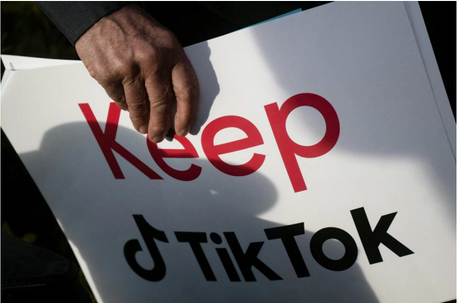Meta is turning to nuclear energy to help meet the growing power demands of artificial intelligence (AI). On December 3, 2024, the tech giant issued a request for proposals (RFP) from nuclear energy developers to partner on building new reactors capable of adding up to 4 gigawatts of nuclear generation capacity in the U.S. by the early 2030s. This marks the latest move by Big Tech to explore nuclear energy as a solution to the immense power consumption required for AI development while striving to reduce carbon footprints.
The increasing energy needs of AI, driven by power-hungry GPUs used for training and inference, have posed a challenge to the sustainability goals of Silicon Valley. As AI technologies become more widespread, the demand for reliable and clean energy sources is intensifying. Nuclear energy, seen as a carbon-free alternative to fossil fuels, is gaining attention as a solution to meet this demand. Meta’s announcement to explore nuclear energy for powering its data centers follows a similar move by Google, which recently partnered with the atomic energy startup Kairos Power to harness small modular reactors (SMRs).
Meta’s interest in nuclear energy is a direct response to the soaring electricity consumption associated with AI. As AI continues to evolve, the computational demands placed on data centers are expected to increase, making clean and stable energy sources more crucial. Meta has emphasized that nuclear power offers the potential to provide firm, baseload energy for both its data centers and local communities’ grids. The company aims to collaborate with developers who can design, finance, and operate new nuclear plants to meet its ambitious energy goals.
The timeline for this nuclear initiative is tight. Meta is seeking partners to help bring new nuclear projects online by the early 2030s, with initial proposals due by February 7, 2025. The company’s target of 1 to 4 gigawatts of new nuclear capacity is ambitious, as typical U.S. nuclear plants generate around 1 gigawatt of electricity. However, Meta’s goal exceeds that of Google, which is working to secure 500 megawatts from Kairos Power’s small reactors.
Despite its promise, nuclear energy comes with significant hurdles. Unlike renewable energy projects such as solar or wind, nuclear power is capital-intensive, subject to stringent regulations, and requires long lead times for development. The first new nuclear reactor to be built in the U.S. in decades came online in 2023 after a seven-year delay and a $17 billion cost overrun. However, next-generation technologies like SMRs are expected to reduce costs and construction times, although these reactors won’t become commercially viable until the 2030s.
Meta’s approach is part of a broader trend among Big Tech companies, including Amazon, Microsoft, and Google, exploring nuclear energy to support their growing energy needs while striving to meet sustainability targets. Amazon has already invested in a nuclear-powered data center, while Microsoft is working to restart a reactor at the Three Mile Island plant. The U.S. government’s roadmap to triple nuclear energy capacity by 2050 aligns with these private sector efforts. The Biden administration’s efforts, bolstered by the Inflation Reduction Act, aim to incentivize nuclear development, further propelling interest in nuclear power.
As AI-driven energy consumption rises, there is growing concern over electricity price increases, especially in data center hubs like Virginia. Research estimates that without new energy solutions, electricity prices could increase by as much as 70% over the next decade. Nuclear energy is becoming an essential part of the solution, particularly as innovations like SMRs offer a potential path to lower-cost, environmentally friendlier nuclear power.
The renewed interest in nuclear power reflects a broader resurgence of nuclear energy in the U.S., driven by both corporate and political backing. Former President Donald Trump has expressed support for accelerating nuclear energy development, viewing it as critical to U.S. leadership in AI and other sectors. Companies like Kairos Power are advancing SMR technology, which promises to make nuclear more accessible by reducing space requirements and eliminating the need for massive cooling towers traditionally associated with large reactors.
Meta’s push for nuclear power highlights its long-term commitment to sustainability while meeting the evolving energy demands of AI. Though the timeline for these nuclear projects is long, the successful deployment of new reactors could help power the next generation of AI innovations and contribute to a more resilient and cleaner energy grid. The growing interest from Big Tech in nuclear power suggests that it will play an increasingly pivotal role in the quest for sustainable energy solutions in the coming decades.







